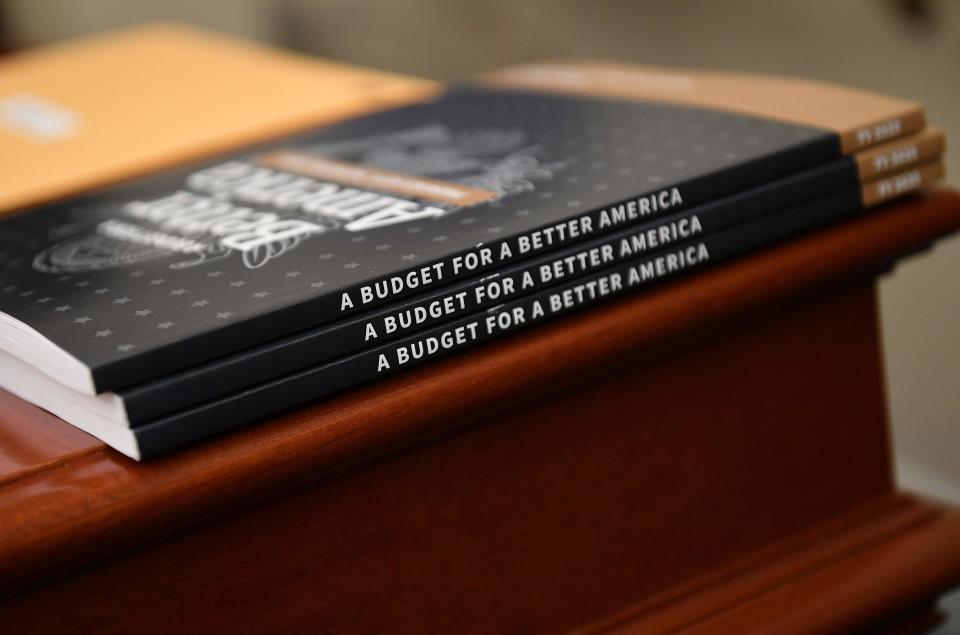What national debt? Budget deal shows neither GOP nor Democratic Party cares
Remember when Republicans excoriated President Barack Obama in 2009 for his $787 billion stimulus package? Remember when they took the Treasury to the brink of default in 2011 to force spending cuts?
Good. Now, as they say in Brooklyn, fuggetaboutit.
That is the message of the latest budget deal the Trump administration negotiated with Congress. The compromise announced late Monday would add $320 billion in spending over two years and raise the federal debt ceiling.
On an annualized basis, it is a much bigger stimulus package than Obama’s, which was spread over a decade. It comes on top of other spending increases, as well as a tax cut that will reduce government revenue by $1.5 trillion over 10 years.
No wonder the nation is spending $1 trillion a year more than it is collecting, even at a time of relative economic prosperity.

OTHER VIEWS: Politically, the budget deal is a net-plus
The optics are such that some conservatives are said to be balking at the deal. But, assuming that this deal, or something like it, passes both chambers of Congress and is signed by President Donald Trump, what does it say?
The unavoidable conclusion is that neither party cares one whit about the national debt — now approaching $23 trillion — they are passing along to young Americans and future generations.
Many Republicans rebelled in the 1990s when presidents of both parties, George H.W. Bush and Bill Clinton, sought to put the nation’s books in order. This century, they have screamed loudly about spending and deficits when Democrats held the White House, and run up a tab like drunken sailors during Republican administrations.
Now many Democrats have apparently thrown in the fiscal-responsibility towel as well. Their tone is increasingly being set by progressive presidential candidates such as Sens. Bernie Sanders of Vermont and Elizabeth Warren of Massachusetts, who recommend spending increases in virtually everything but defense.
The good news about this budget deal is that it would prevent a government shutdown or a Treasury default for at least two years. In an era of dysfunctional and polarized government, one has to take one’s little victories where they come.
At times, it seems this generation of politicians has only two modes: acting irresponsibly while threatening mayhem, or simply acting irresponsibly.
The main drivers of government spending are health care and retirement programs. They are on autopilot, with spending going up each year automatically without Congress actually voting on these increases. But substantial changes in benefit programs are not on the table. Nor is there much appetite for tax hikes, which could fill a number of fiscal holes once they stop getting bigger.
Instead, congresses and presidents have periodic fights over the one-third of government spending that actually requires a vote each year. Sometimes these battles include moralizing, brinkmanship and short-term disruption. And sometimes they do not. But all of the time, they take our great nation closer to fiscal ruin.
USA TODAY's editorial opinions are decided by its Editorial Board, separate from the news staff. Most editorials are coupled with an opposing view — a unique USA TODAY feature.
To read more editorials, go to the Opinion front page or sign up for the daily Opinion email newsletter. To respond to this editorial, submit a comment to letters@usatoday.com.
If you can't see this reader poll, please refresh your page.
This article originally appeared on USA TODAY: What national debt? Budget deal shows neither party cares

